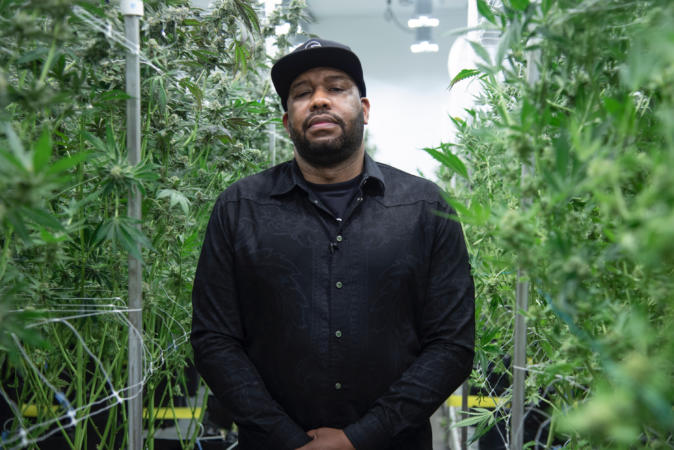In our nearly hour-long conversation, Superbad CEO Carlos Dew didn’t just limit his conversation to talking about his top-shelf brand cannabis. Rather, our conversation ran the gamut from the changing face of the legal cannabis industry to the misconceptions about “legal weed,” as a whole.
“There are multiple ways to get into the industry,” he told AfroTech. “And the biggest problem that most Black men and women have, today, in getting into the industry is the lack of capital behind them. But, a good cannabis business isn’t just about money. Rather, it’s about forming a consortium of people — of businessmen and women, of growers, of attorneys, of everything that makes a good corporation — and understanding both your rights and your responsibilities as a business.”
This innate understanding of the cannabis business, and how it works, has helped Dew bring Superbad to the upper echelons of success. Billing itself as a “top-shelf cannabis brand” — poised to go up against such brands as Jay-Z’s Monogram brand of cannabis-based products — Dew understands that weed, as a product, needs to be treated like fashion. That is to say, for every pret a porter brand of fashion, there needs to be its haute couture counterpart — and for Dew, it’s more important that he caters to the latter, and not the former.
However, Dew, like many Black men in the “legal weed” business, understands that it’s a business that’s dominated by their rich white male counterparts. While that’s for a variety of reasons — lack of resources, lack of understanding of the business itself, lack of availability of licenses for the previously-incarcerated — the Superbad CEO feels as though it’s his responsibility to “give back” to the community by empowering men and women with knowledge, resources, and — above all else — capital to reclaim their place in an industry that they helped build.

“For me, it’s important to create social equity programs,” he said, while adding that his programs prevent recidivism in addition to empowering the formerly incarcerated. “Now, if your brand conquers California, your brand conquers everywhere else. But, I understand that not everyone is in California — so it’s my job to help them build their presence wherever they are. But in order for them to do that legally, and in a way that empowers them and their communities, I have to connect them with other Black men and women in the business, as well. I insist that everyone in their circle — from their venture capitalist to their grower — be Black, because honestly, our time is long past due to stake our claim in the industry.”
For now, Superbad’s products are available only in California, though Dew foresees his brand growing as more states decriminalize and legalize marijuana. However, no matter how big he gets, Dew says he will continue to help his people grow in the industry.
“My ultimate goal is to be a consultant for young brothers and sisters,” he said. “Weed is the hottest business now, and everyone wants a piece of it. I want them to get it. But this business is full of sharks — like the music business before it. And the only way they’re going to get it — the only way they’re going to be able to say ‘How bad are you? Superbad!’ — is through roundtables and mentorships. There’s no other way around it.”
Editorial Note: Portions of this interview have been edited and condensed for clarity.


